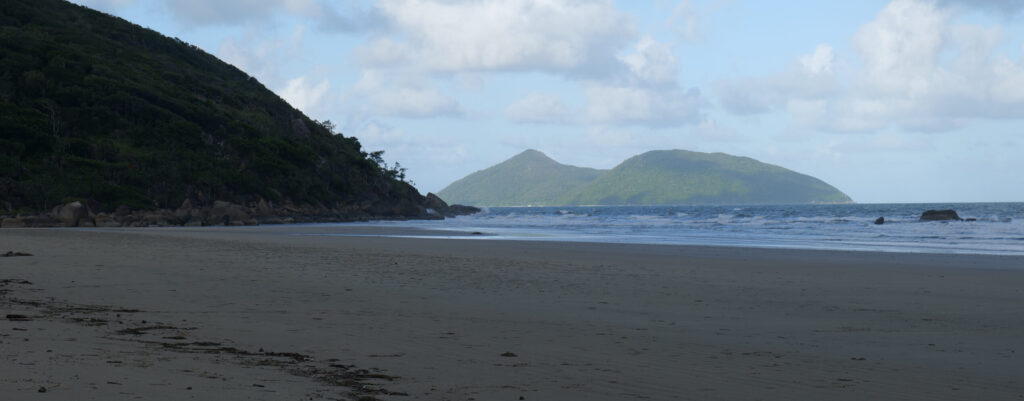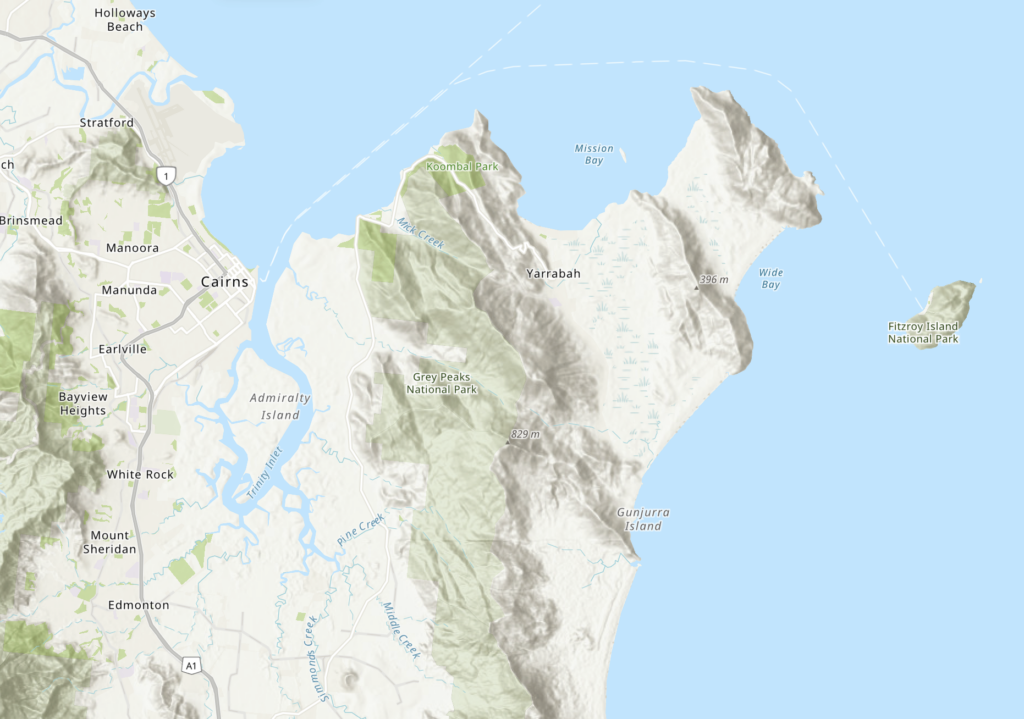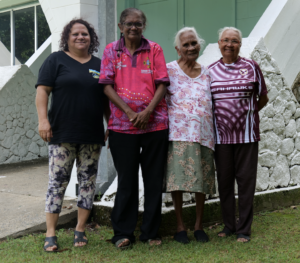Gunggandji Country, Far North Queensland
The Aboriginal township of Yarrabah, due east of Cairns, is the traditional country of the Gunggandji and Mandingalbay Yidinji peoples.
By Elverina Johnson
This is a 5 minute read and 22 minute video, published June 2024.
My maiden name is Murgha, and I am a direct descendant of King Menmuny or Merimenai (as he was also known) through his son and grandson Jinna Murgha and Dirringhi (Stafford Murgha), and my mother Dorita Wilson (née Murgha).
I come from a line of strong Gungganji leaders, cultural teachers and also spiritual leaders who were leaders in the Anglican Church at Yarrabah since the arrival of John Gribble to the shores of Yarrabah in 1892.
Who was King Menmuny?
Menmuny was the King of the Gungganji people of Yarrabah. He was recognized by John Gribble, the first missionary at Yarrabah from 1892, as a strong leader of the people and community. After Gribble arrived at Yarrabah in 1892, he set up a small area of land where he established the Anglican Church Mission Station. While he was there, he found Menmuny, who was one of the first Aboriginal people to come to the Mission Station.
It was during that time that the relationship between Menmuny and John Gribble was established. Gribble saw Menmuny as having great influence with the people, and therefore gave Menmuny the responsibility to try and encourage people to come to the Mission Station and become Christian converts.
I was told about Menmuny by community leaders at Yarrabah and other descendants. They told me that Menmuny was a great leader who practiced his concerns and authority with the people. Elders told me that Menmuny had full cultural responsibility for the Gungganji people prior to Gribble coming. I was told that his mother Tonkabulu was a strong advocate for her tribe, the Gungganji people.
Gribble’s diary records that Tonkabulu did not approve of Gribble being in Yarrabah and influencing the Gungganji people to become affiliated with his Church. The Australian Board of Missionaries reports also record that Tonkabulu did not want anything to do with Gribble and the church. Her son, Menmuny, felt differently to his mother.
King Menmuny and the Yarrabah community
I believe that given there was a mixture of community issues that stemmed from colonization such as punishment if the local tribes practiced their culture, mixed in with illness and community dysfunction, opium, alcohol and tobacco misuse, Menmuny had to look at the social wellbeing of the community. If that meant becoming Gribble’s community influencer then that is what he had to do to show leadership, not just for his own people, but for all those later brought to Yarrabah as part of the Stolen Generation.
Menmuny’s life is discussed by Lynne Hume (1994) and Christine Halse (2002), and is also known to me from my family’s oral history. That history records that Menmuny’s was there at the start of the introduction of Christianity at the community of Yarrabah. Halse (2002) records that Menmuny had to deal with his mother’s opposition to the church. The conflict for him would have been greater than those who came after him.
That conflict was being true to his Gungganji people, as a leader of the Gungganji people, responsible for making sure that cultural practices were maintained. But Menmuny was also aware that if Gungganji people practiced culture they would be punished by Gribble. My elders explained to me that Menmuny had to find a way whereby they could still practice culture and not be caught to maintain order and balance in the context of colonization.
Welcome to Country: Menmuny Murgha, Danny Murgha, Elverina Johnson
Sources and further reading
Halse, Christine. 2002. A Terribly Wild Man. Crows Nest, NSW: Allen & Unwin.
Hume, Lynne. 1994. ‘Yarrabah: Christian Phoenix: Christianity and Social Change on an Australian Aboriginal Reserve’. PhD Thesis, Department of Anthropology and Sociology, The University of Queensland.
Related articles




